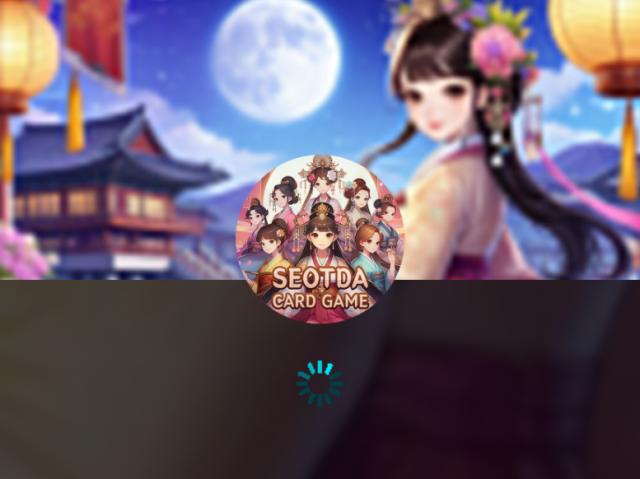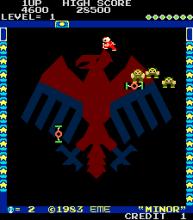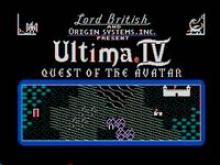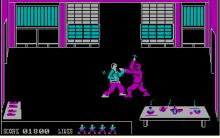SEOTDA CARD GAME
How to play SEOTDA CARD GAME
Use the mouse to select and play cards from your hand.
Form winning card combinations based on traditional Seotda rules.
Compete against AI opponents or other players in multiplayer mode.
Aim to achieve the highest score by the end of each round.
Learn the value and significance of different card combinations to enhance your strategy.
SEOTDA CARD GAME Description
Seotda Card Game is a strategic and traditional card game that brings the excitement of the Korean card game "Seotda" to your PC. Developed by HanKook Studios and released as freeware in 2006, this game offers players an authentic and engaging experience of one of Korea's most beloved card games. The top-down perspective allows for easy viewing and management of cards, creating a smooth and intuitive gameplay experience.
In Seotda Card Game, players compete to create the best card combinations using a deck of traditional Korean cards (Hwatu). The game involves a blend of strategy, luck, and skill as players aim to form winning hands and outsmart their opponents. The vibrant graphics and traditional Korean music immerse players in the cultural atmosphere, making the game both entertaining and educational.
Seotda Card Game stands out with its cultural authenticity and strategic depth, providing a unique card game experience for players worldwide. Available on Windows for PC, this freeware game is perfect for card game enthusiasts and those interested in exploring traditional Korean games.
Cheats/Hints/Walkthroughs for SEOTDA CARD GAME

Seotda Card Game: A Traditional Korean Card Game Adventure
Seotda, also known as Gostop or Godori, is a traditional Korean card game that combines elements of strategy, luck, and cultural heritage. Popular among players of all ages in Korea, Seotda is often played during festive gatherings and family events. This game offers a unique blend of excitement and tradition, making it a captivating choice for card game enthusiasts.
Understanding Seotda: A Brief Overview
Seotda is played with a special deck of cards known as "Hwatu" or "Hanafuda." These cards are distinctively decorated with images of flowers, animals, and other traditional motifs. The game can be played in different variations, with Gostop being one of the most popular forms. The primary objective is to create specific combinations of cards to score points and win rounds.
Gameplay Mechanics and Features
The Hwatu Deck
The Hwatu deck consists of 48 cards divided into 12 suits, each representing a month of the year. Each suit contains four cards with unique illustrations. Understanding the symbolism and point values of these cards is crucial to mastering Seotda.
Basic Rules and Objectives
In Seotda, players aim to create winning combinations or "yaks" with their cards. Some common combinations include:
- Gwang (光): Special high-value cards often illustrated with bright designs.
- Godori (고도리): A combination of three specific cards featuring birds.
- Cheongdan (청단) and Hongdan (홍단): Combinations of red and blue ribbon cards.
Players take turns drawing and discarding cards, trying to form these combinations while preventing their opponents from doing the same. The game is won by the player who accumulates the most points through successful combinations and strategic play.
Strategic Play and Skill
While luck plays a significant role in Seotda, strategic thinking and skillful play are equally important. Players must decide when to draw new cards, when to keep or discard certain cards, and how to block their opponents' progress. Anticipating opponents' moves and adapting strategies accordingly is key to winning.
Tips and Strategies for Mastering Seotda
Learn the Card Values
Familiarize yourself with the Hwatu deck and the values of different cards. Understanding which combinations yield the highest points will help you make informed decisions during the game.
Pay Attention to Opponents
Keep an eye on your opponents' moves and card patterns. This can provide valuable insights into their strategies and help you anticipate their next moves. Blocking their combinations can give you a significant advantage.
Balance Risk and Reward
Seotda involves a balance of risk and reward. Deciding when to go for high-value combinations or play it safe with lower-value but more achievable combinations can impact your overall success. Adapt your strategy based on the cards you have and the state of the game.
The Cultural Significance of Seotda
A Reflection of Korean Heritage
Seotda is more than just a card game; it is a reflection of Korean culture and tradition. The Hwatu cards feature traditional Korean art and symbolism, making the game a celebration of the country's heritage. Playing Seotda during holidays and family gatherings strengthens cultural bonds and preserves these traditions for future generations.
Social and Community Aspect
Seotda is often played in social settings, fostering a sense of community and camaraderie. The game's interactive nature and the strategic banter between players create a lively and engaging atmosphere. Whether played casually among friends or competitively in tournaments, Seotda brings people together.
Similar Games to Explore on Classic Reload
For fans of Seotda, Classic Reload offers a variety of other engaging card and strategy games that provide similar enjoyment and challenge. Here are a few recommendations:
- Poker – A classic card game of skill, strategy, and luck that is popular worldwide.
- Mahjong – A traditional Chinese game involving skill, strategy, and calculation, often played with tiles.
- Hearts – A trick-taking card game that requires strategic play and careful planning.
- Spades – Another popular trick-taking card game that emphasizes strategy and teamwork.





















Write a comment